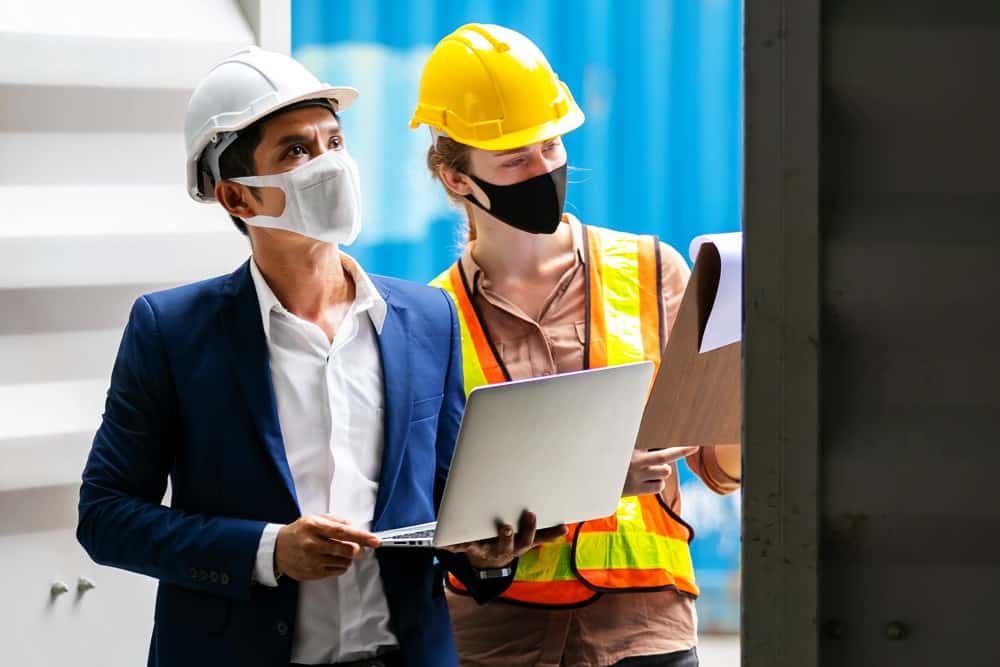
Effective communication is the cornerstone of personal and professional success. It allows us to express our ideas clearly, connect with others and navigate the complexities of human interaction.
While many of us believe we communicate effectively, the reality is often different.
Workplaces bring together many different personalities and communication styles. Misunderstandings are common, messages get lost in translation and the true intent behind words is frequently misinterpreted.
But you can learn how to improve communication skills like any other ability.
This guide outlines strategies for becoming a better communicator. You can promote collaboration at work and convey your messages clearly and with impact.
What is Effective Communication?
Effective communication isn’t just conveying information; it’s ensuring your message is received and understood as intended. Communication isn’t one-way, either. You must be able to actively listen and relate to others.
Why is Effective Communication Important?
Communication skills in the workplace are essential. Making yourself understood and listening closely to others is fundamental to professional success.
Effective communication improves efficiency. It helps you relay and receive instructions clearly, reducing the likelihood of mistakes and the need for rework. This clarity also streamlines processes and allows teams to meet deadlines consistently.
You and your team members will also feel more comfortable collaborating when you can communicate effectively. Effective communication encourages open dialogue and mutual respect among colleagues. And when employees feel valued and understood, they’re more engaged, motivated and committed to their work.
Improved collaboration also inspires innovation and problem-solving. Leaders who can bring team members together and get them working towards a common goal typically see faster, better solutions.
Communication also prevents conflict. Misunderstandings and disagreements are inevitable in any workplace. Still, effective communication reduces the likelihood of them happening or escalating into full-blown conflict. When early signs of conflict happen, being able to talk through them constructively speeds up resolutions and promotes better outcomes for everyone involved.
Finally, being known as an effective communicator can advance your career. Individuals who can convey their ideas clearly, listen well and resolve conflicts diplomatically are often seen as natural leaders. This recognition can lead to being trusted with more responsibilities or taking on management roles.
What Skills are Needed for Effective Communication?
Communication in the workplace involves more than talking and listening. To become an expert communicator, you need to master various skills.
Recognising and honing the following skills is essential to improve your communication ability.
Active Listening
Active listening is not just about hearing words but understanding their message. It involves giving full attention, showing interest and providing the speaker with feedback that proves your interest and understanding. This display builds trust and rapport between you and your conversation partner.
Verbal Communication
Verbal communication skills encompass the ability to articulate ideas clearly and concisely, using language easily understood by the audience.
It’s also about considering tone and pace to convey your message effectively. For example, you should adopt a different speaking style when presenting compared to asking a colleague for feedback.
Non-verbal Communication
Non-verbal cues, such as body language, facial expressions and eye contact, play a critical role in communication. They can reinforce or contradict what is being said, affecting the receiver’s perception and understanding.
Being adept at reading and using non-verbal signals enhances the clarity and credibility of your message.
Written Communication
Written communication is now as important as verbal and nonverbal skills. To get ahead in the workplace, you must craft clear, concise and grammatically correct emails, reports and other documents.
Relying solely on written words to make your point also increases the chance of misunderstandings. So, you must also be able to convey messages clearly without using non-verbal cues.
Emotional Intelligence
Emotional intelligence involves understanding your emotions and those of others. It includes empathy, self-awareness and the ability to regulate emotions.
This self-control lets you take a measured approach to workplace communication. You can remove emotion from your responses and focus on the message itself. This focus can help prevent conflicts and ensure all communications are professional and productive.
Adaptability
Effective communicators are adaptable. You must be able to adjust your communication style to suit the audience, context and channel.
This skill ensures your message is appropriately received across different settings and mediums, from formal presentations to casual conversations.
How to Improve Communication Skills
Improving your communication skills requires practice, awareness and a willingness to learn. For each of the skills outlined, there are specific strategies you can use to enhance your ability to communicate effectively in the workplace.
Developing Active Listening
Focus on being present in the conversation to improve your active listening skills.
Put aside distractions like phones or laptops and give the speaker your undivided attention.
You should also occasionally summarise the speaker’s main points using their own words. Rephrasing in this way shows you’re engaged and can help solidify your understanding.
Improving Verbal Communication
Exceptional verbal communication takes an expansive vocabulary and clear articulation.
Consider pace when speaking. Speaking too quickly leaves you little time to plan talking points. A lack of thinking time invites mistakes and makes it harder for your audience to process your words.
You can also seek opportunities to speak publicly. It will help reveal your strengths and weaknesses as a communicator. Plus, tackling the challenge of addressing a crowd will make subsequent conversations much more manageable.
Improving Non-Verbal Communication
Successful non-verbal communication depends on your ability to observe others. Notice how they use body language, facial expressions and other non-verbal cues. This process will help you better understand them. You’ll also be able to mirror their cues to show interest and promote cooperation.

You should also be conscious of your own body language. Ensure it’s open and inviting rather than closed off or defensive. Smiling, maintaining eye contact and nodding all help convey interest and engagement.
Improving Written Communication
Reading widely and regularly practising helps enhance your writing skills. Pay attention to the structure and flow of texts you admire and incorporate similar elements into your writing.
It’s also important to be concise. Review it before sending an email or document to remove unnecessary words or jargon that might confuse the reader. You can also use AI tools to help polish your grammar and punctuation.
Developing Emotional Intelligence
To develop emotional intelligence, start by practising self-awareness. Reflect on your emotions and reactions to different situations.
Try empathising with others by putting yourself in their shoes, especially in tense situations. Active listening can help with this as it makes it easier to understand others’ perspectives.
Regularly seeking feedback on your interactions can also provide insight into areas for improvement.
Adapting Communication Styles
Always consider the context, medium and audience for important messages.
Adjust your tone, language and formality of communication to suit the situation and audience. Over time, you’ll become more skilled at quickly identifying the most effective communication method in any given scenario.
Next Steps to Becoming a Better Communicator
Online training can teach you more about these techniques and improve your communication skills in the workplace.
Our Communication Skills Training course can help you become a better communicator. It covers all aspects of workplace communication, including common barriers to understanding and how to overcome them. You can build rapport more quickly, avoid mistakes and be sure your words are heard and understood.






















































































































































































































































































































































































































































































































































